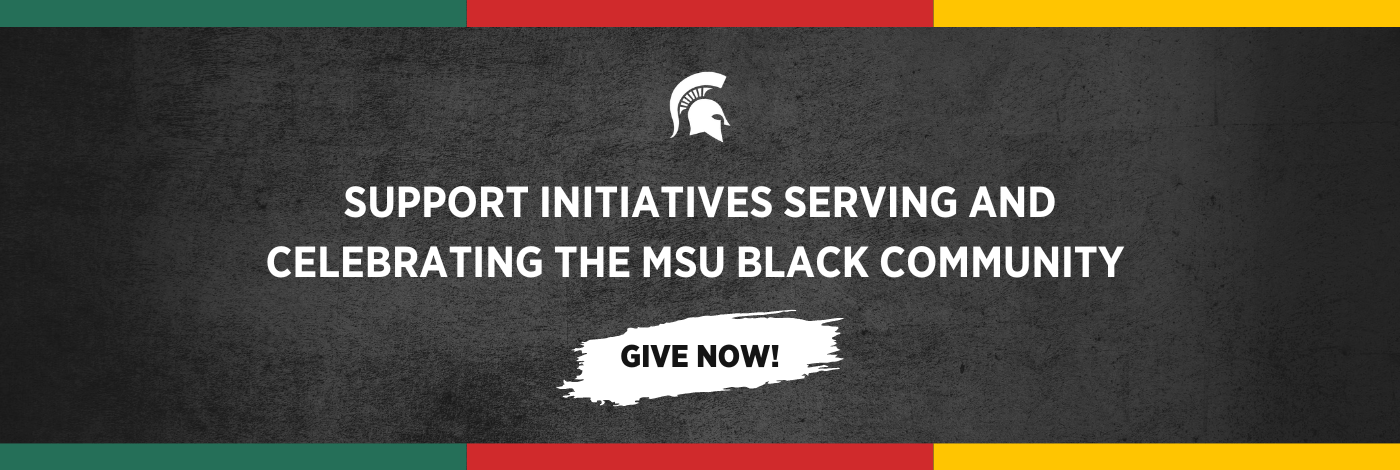Malcolm X Muslim Studies Community Forum highlights the Black Muslim identity in America
February 6, 2023 - Brigita Felkers
On Jan. 25, MSU’s Muslim Studies Program presented the 2nd annual Malcolm X Muslim Studies Community Forum at the Erickson Kiva. The event took place exactly 60 years and two days after Malcolm X gave a speech at MSU in the very same room.
Malcolm X Speaks at Michigan State University, 1963
Malcolm Little, more commonly known as Malcolm X, was a minister and civil rights activist. Raised in Lansing, Michigan, he traveled the world pursuing justice for Black people in the United States during the 1950’s and 60’s.
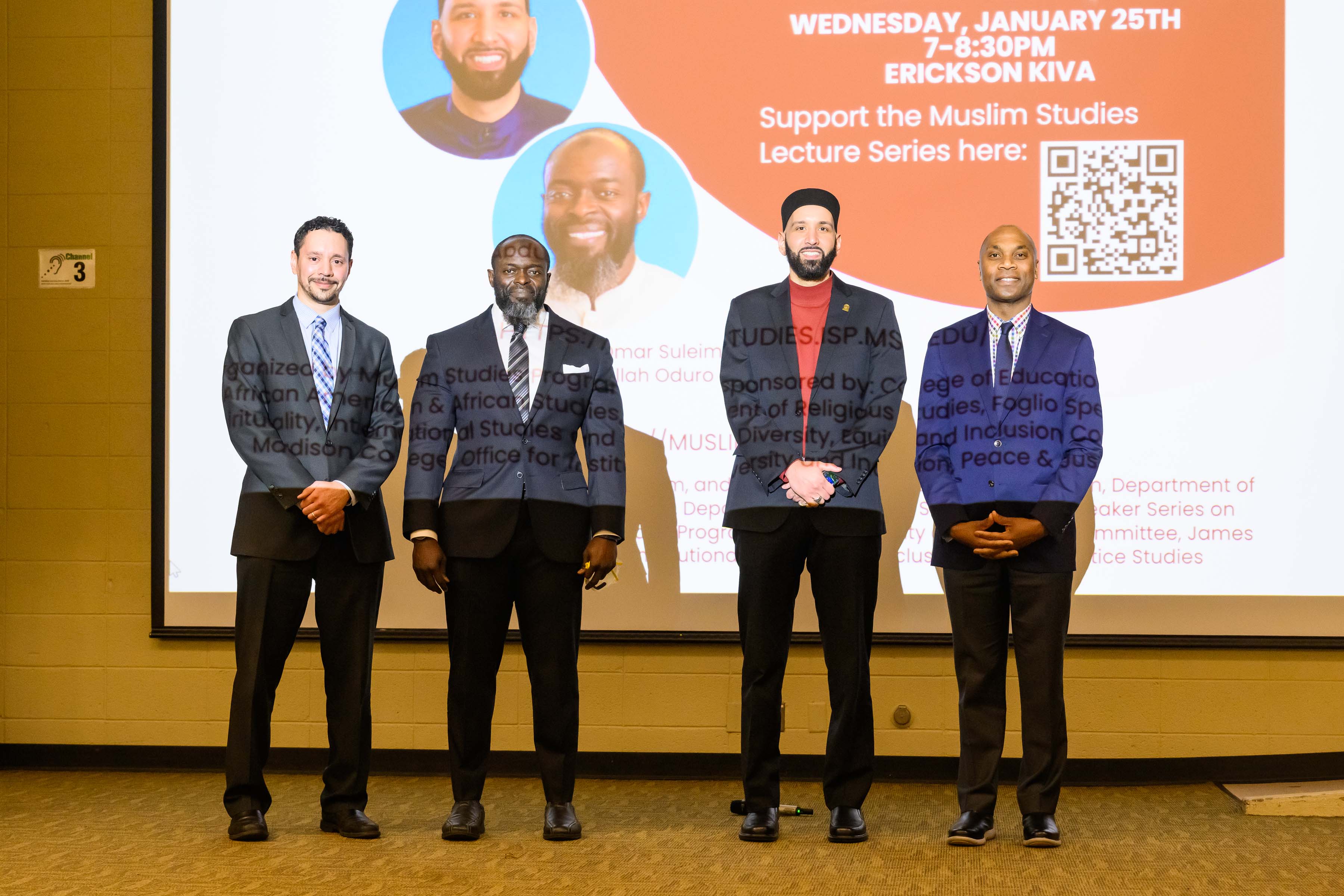 During this time, Malcolm was also an advocate for Islam and became the face of the religion for the U.S. While he was in prison, Malcolm was an outspoken atheist and even held the nickname “Satan.” But after he was exposed to the ideologies of the Nation of Islam, he dove into the teachings and combined them with the ideas of Black power.
During this time, Malcolm was also an advocate for Islam and became the face of the religion for the U.S. While he was in prison, Malcolm was an outspoken atheist and even held the nickname “Satan.” But after he was exposed to the ideologies of the Nation of Islam, he dove into the teachings and combined them with the ideas of Black power.
“Malcolm X was an extremely interesting and misunderstood public figure,” said Dr. Mohammad Khalil, director of Muslim Studies Program. “This event challenged some of the one-dimensional portrayals of Malcolm and demonstrated how at least some members of our community have been greatly impacted by his example.”
American Muslim scholars Imam Abdullah Oduro and Imam Omar Suleiman, keynote speakers, discussed this and more at the event.
Oduro converted to Islam in 1997, and since then has conducted public speeches, sermons, lectures and workshops around the country. Currently, he serves as the Imam at the Islamic Center of Coppell and Lewisville in Dallas, Texas. Additionally, he is a Scholar for the Yaqeen Institute for Islamic Research.
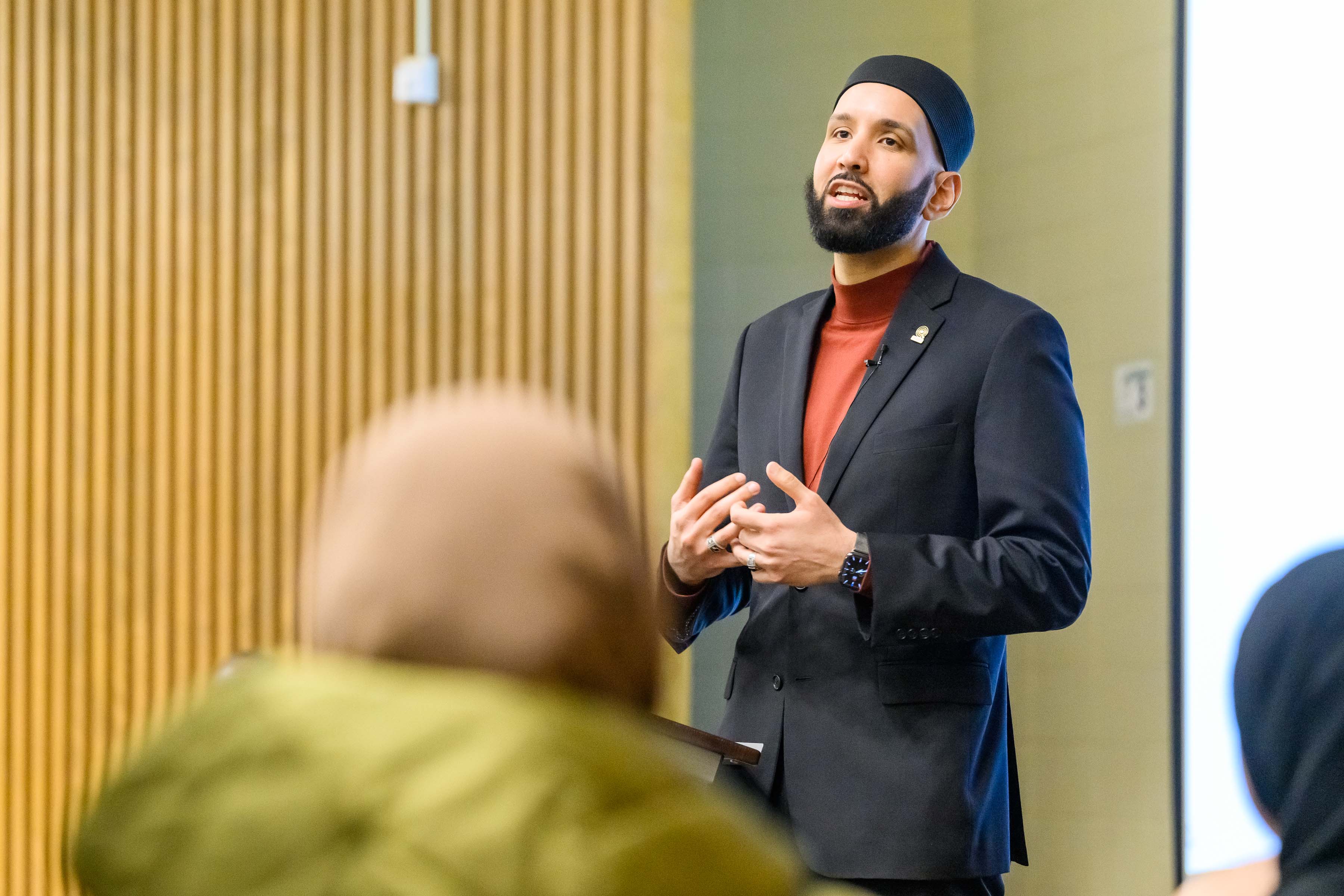 Suleiman is the founder and president of the Yaqeen Institute for Islamic Research and adjunct professor of Islamic Studies in the Graduate Liberal Studies Program at Southern Methodist University. He is also the Resident Scholar at Valley Ranch Islamic Center and Co-Chair Emeritus of Faith Forward Dallas at Thanks-Giving Square.
Suleiman is the founder and president of the Yaqeen Institute for Islamic Research and adjunct professor of Islamic Studies in the Graduate Liberal Studies Program at Southern Methodist University. He is also the Resident Scholar at Valley Ranch Islamic Center and Co-Chair Emeritus of Faith Forward Dallas at Thanks-Giving Square.
After being introduced by Dr. Mohammad Khalil, director of Muslim Studies Program, and Dr. Jabbar R. Bennett, vice president and chief diversity officer, Oduro began the evening by speaking about Malcolm’s journey as a Black Muslim and stressed the importance of understanding the history to move forward.
“Understanding the plight of Muslims in America is important,” said Oduro in his speech. “To where it will dictate proper movements and proper alignment of our communities in America. So when looking at Malcolm X and understanding his profound mission and how he called people to Islam with no shame, with no fear, with full integrity, with full strength, with full honor, with full diplomacy, you understand that this individual is somebody that goes down in history.”
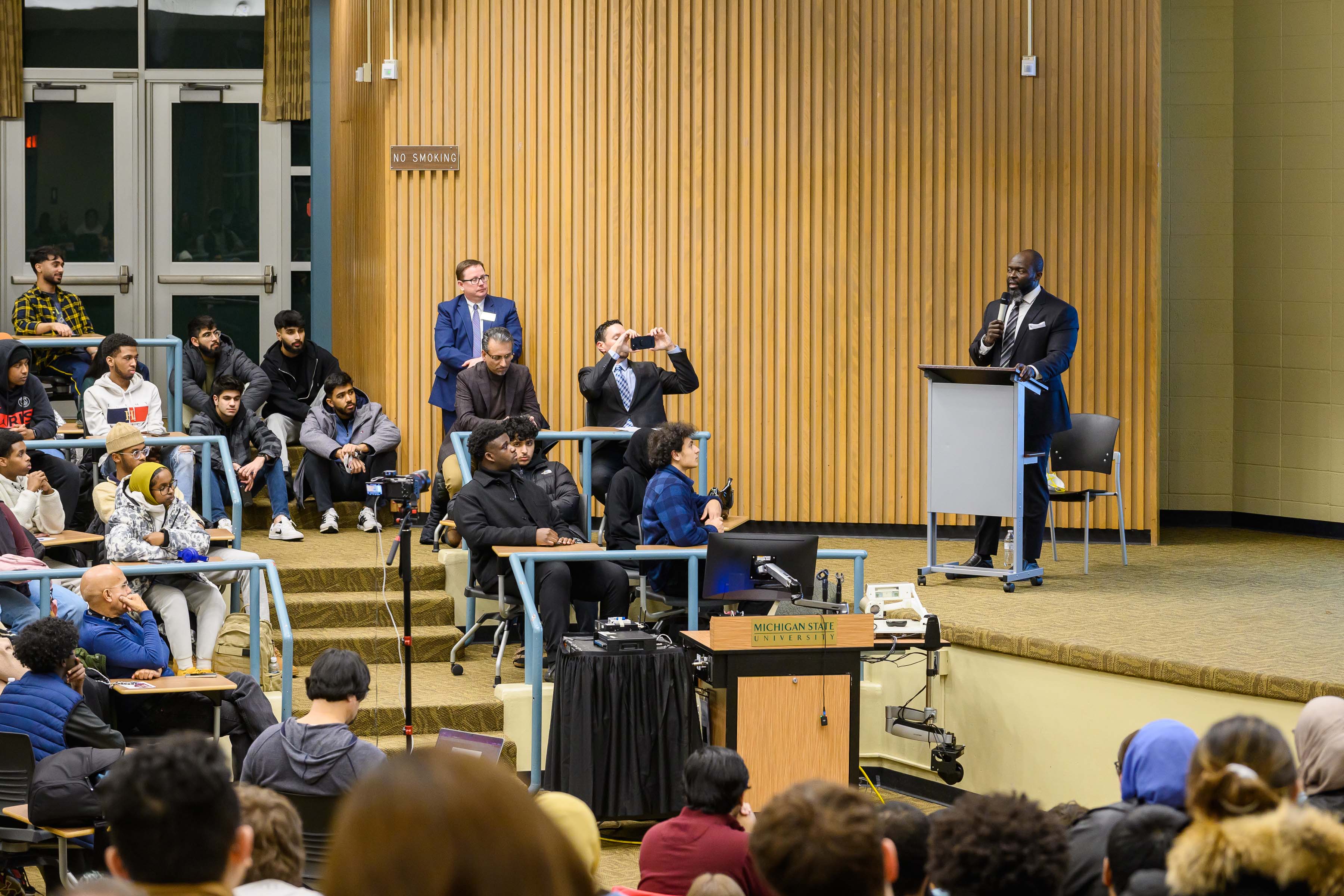 Oduro outlined many of Malcolm’s accomplishments during his speech as well as the struggles he faced. He explained that many of the problems Malcolm faced are still going on today, particularly those of the cultural differences that break the community down.
Oduro outlined many of Malcolm’s accomplishments during his speech as well as the struggles he faced. He explained that many of the problems Malcolm faced are still going on today, particularly those of the cultural differences that break the community down.
Suleiman spoke second, focusing on the theme of the burden of Malcolm sincerity. He, too, outlined the life of Malcolm and looked at it through this lens, shedding light on the sincerity that is religion.
He explained that although Malcolm had become characterized as an angry Black rebel, he remained sincere throughout all his activism despite the challenges this brought onto him. Even when being a Muslim gave him no benefits in the civil rights movement in America, he chose to maintain his identity as a Black Muslim.
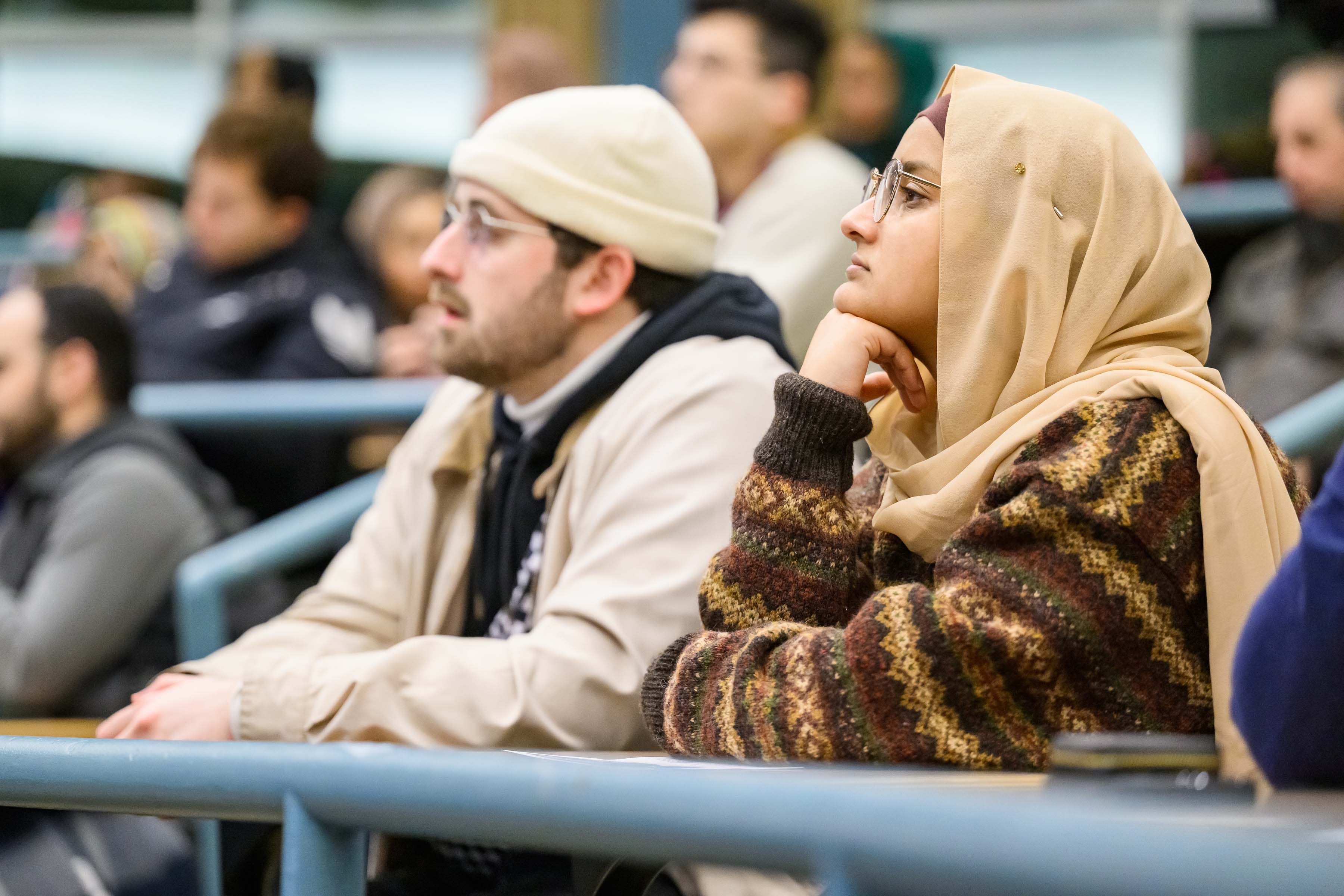 “Malcolm does not choose the most convenient option. There are many times that he could have chosen the more convenient route; there are many people that wanted Malcolm to abandon his adherence to Islam all together,” said Suleiman in his speech. “Think about this from a worldly perspective: Malcolm gets no benefit by being the one Muslim, the one Sunni Muslim, on the circuit. He has no benefit if he wants to integrate into mainstream civil rights work. He either abandons the religion altogether, abandons anything that's going to be a barrier between him and some of the other articulate leaders of the movement, but he chooses to adhere to his most authentic pursuits.”
“Malcolm does not choose the most convenient option. There are many times that he could have chosen the more convenient route; there are many people that wanted Malcolm to abandon his adherence to Islam all together,” said Suleiman in his speech. “Think about this from a worldly perspective: Malcolm gets no benefit by being the one Muslim, the one Sunni Muslim, on the circuit. He has no benefit if he wants to integrate into mainstream civil rights work. He either abandons the religion altogether, abandons anything that's going to be a barrier between him and some of the other articulate leaders of the movement, but he chooses to adhere to his most authentic pursuits.”
The event itself was nearly two hours and filled with people from all over the East Lansing area, many of whom were students who came to learn more about Malcolm X.
“Understanding the qualities and lives of leaders like Malcolm X is important to understanding key tools in ways we can tackle the issues in our communities,” said Saarah Alam, a third-year student in Lyman Briggs.
MSU recognizes Black History Month, and our community is coming together to strengthen resources, programs, research centers and scholarships supporting Black students at MSU and promoting a culture of inclusion. Learn more at givingto.msu.edu.


